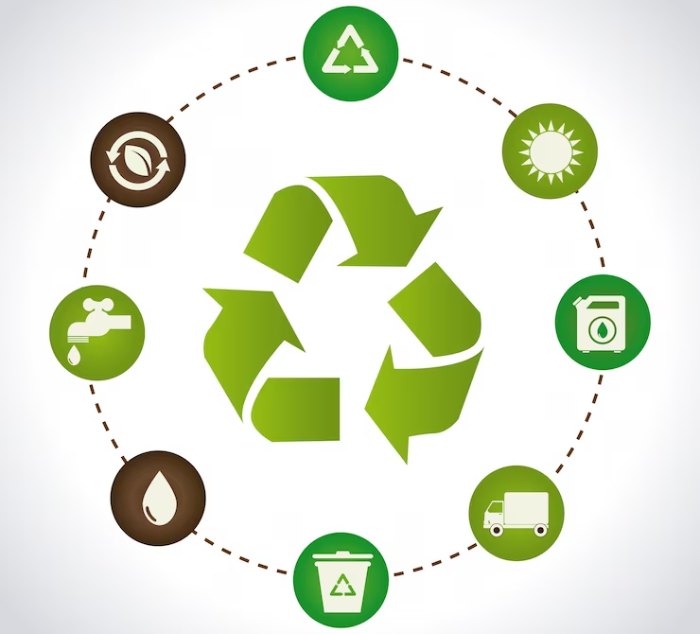Smart Solutions: How Technology is Transforming Waste Management

As the old proverb says, “One man’s trash is another man’s treasure.” But it’s more than just a saying—it is a way of life. A sustainable and healthy future depends on effective waste management. Traditional disposal methods like landfills and incineration lead to pollution, greenhouse gas emissions, and squandering of natural resources.
Robotics
Modern waste management technologies allow for more precise handling of different types of garbage. They can identify recyclable materials and non-recyclable ones like metals and glass. Some systems can also track if a garbage bin is full and send alerts for pickup to avoid unnecessary waste collection trips. This technology in waste management can help reduce waste disposal costs and increase sustainability efforts in your business. In addition, it can also boost employee safety and productivity.
Robotics can be used to scan waste and separate recyclables from other materials. For example, a waste-sorting robot with computer vision can efficiently recognize different kinds of rubbish based on their visual characteristics. It can significantly increase a recycling plant’s operational efficiency. Analyzing satellite images can also predict where illegal waste dumping is likely.
Automated Sorting
Several innovative technologies are used to sort waste from different categories. These include sensor technology, automated sorting robots, and more. These can help prevent waste from being sent to landfills and improve recycling efficiency. Trash management is a huge challenge for governments, especially in developing countries. The cost of managing trash is a significant drain on local budgets, which can lead to cuts in other public services. Moreover, waste-level sensors can alert municipal workers of full garbage cans in real time, preventing overflow and cutting collection costs. To curb natural resource depletion and climate change, human society must find a way to reduce waste disposal. The good news is that many tech-enhanced solutions are available to facilitate the shift toward zero waste.
Artificial Intelligence
Modern waste management depends on a range of technologies. Some of them, like robotics and AI computer vision, are already changing the design and operation of waste sorting plans. Ultimately, solutions that address the four aspects of modern waste—tonnage, toxicity, heterogeneity, and externalization—can change waste infrastructure, culture, and what counts as trash. However, individual, behavioral, or technological fixes cannot change the fundamental waste drivers on a large scale.
However, stratification can help make an impact in specific areas. For example, waste level sensors and live monitoring platforms can prevent garbage overflows and related health risks by alerting collection employees when bins are full. Communication technology for these devices varies, but options include MQTT and LoRaWAN (Low Power Wide Area Network), both suitable for low-power IoT applications.
PPPs
Modern technologies have made waste management greener to prevent the planet from becoming a trash kingdom. They help us manage the growing amount of waste by eliminating odors, reducing the number of pests, and converting toxic substances into energy. A PPP is a public–private partnership wherein private entities finance government projects or services up-front and earn profit over the contract duration. Private partners are often rewarded based on results and performance, which encourages them to improve efficiency, quality, or productivity, resulting in savings that can eventually be transferred to the government (generally in the form of lower prices for customers or minor charges for taxpayers). The newest technology is Waste-to-Energy, an eco-friendly system that converts solid waste into clean and sustainable energy. Its crucial feature is producing electricity without producing ash or toxic gasses.
Sensor Technology
Modern waste management technologies focus on more than technological aspects. They also address sociological ones, such as influencing ecological awareness and helping reduce non-recyclable waste. Smart trash bins are equipped with real-time sensors that monitor their fill levels, enabling waste collection companies to optimize routes and efficiently schedule garbage pickups. It reduces fuel consumption, lowers waste disposal costs, and helps keep cities cleaner and greener.
Furthermore, route optimization software can detect traffic conditions and reroute vehicles accordingly, saving time and energy. Smart trash bins can communicate with each other using MQTT and LoRaWAN, which allow for long-range data transmission with minimal power usage. It lets them detect when a waste bin is full and send this information to a central system in real-time.
Automation
Various automation technologies are transforming waste management. One such technology is computer vision, which allows robots to interact with waste physically. The software uses machine learning to detect the kinds of waste based on visual characteristics, such as shape and color. It allows robots to sort different types of waste on a conveyor belt efficiently. Illegal waste dumping can poison the environment and endanger public health, so it’s also helpful in identifying such instances.
Another way to turn trash into treasure is by upcycling, repurposing, and reusing discarded materials to create new, distinctive, desirable products. This process can reduce the demand for new raw materials, a critical component of a sustainable economy.
Waste-to-Energy
Waste-to-energy uses trash as a fuel to generate electricity, much like other power plants that use coal, oil, or natural gas. The heat generated from the trash is used to make steam that turns turbines to produce electricity. This method can stop one ton of carbon dioxide emissions from entering the atmosphere for every ton of trash burned and reduce landfill waste by up to 90%.
However, it’s important to note that burning MSW can release harmful dioxins and furans into the air, so many communities prefer to divert their trash away from waste-to-energy plants. The good news is that advanced emission control designs and stringent new governmental regulations are helping to reduce these toxic emissions.





